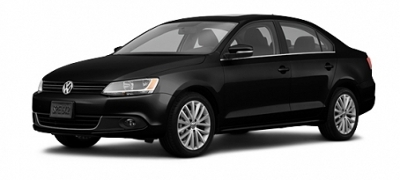Jetta Exhaust Videos
- 1999 Volkwagen Jetta Exhaust Systems
- 2000 Volkwagen Jetta Exhaust Systems
- 2001 Volkwagen Jetta Exhaust Systems
- 2002 Volkwagen Jetta Exhaust Systems
- 2003 Volkwagen Jetta Exhaust Systems
- 2004 Volkwagen Jetta Exhaust Systems
- 2005 Volkwagen Jetta Exhaust Systems
- 2006 Volkwagen Jetta Exhaust Systems
- 2007 Volkwagen Jetta Exhaust Systems
- 2008 Volkwagen Jetta Exhaust Systems
- 2009 Volkwagen Jetta Exhaust Systems
- 2010 Volkwagen Jetta Exhaust Systems
- 2011 Volkwagen Jetta Exhaust Systems
Jetta Exhaust System Tips

Introduced in 1979, the original Jetta was essentially a Volkswagen Golf with a trunk attached. Though initially slightly larger than the Golf, the compact Jetta has evolved and is now distinctly separate from the Golf. For 2011, the sixth generation VW Jetta was introduced, offering one of the largest cabins in the compact car class.
Down through the years, the Jetta has been offered as a sedan, coupe and wagon. Today, the sedan and wagon (SportWagen) are still sold, although Volkswagen markets these cars separately. That’s because these two models are quite different, thus our overview focuses on the sedan alone.
Third Generation (1993-1999)
When the 1993 model year launched, with it came an all new Volkswagen Jetta. Volkswagen had been making some changes to distinguish this model from the Golf, offering a generous sized cabin, decent trunk storage and excellent handling. One engine, a 2.0-liter gasoline four cylinder powered the Jetta III or third generation model, mated to a 5-speed manual or 4-speed automatic transmission. This 8-valve engine isn’t known for delivering power, rated at 115 horsepower at 5,400 rpm and 122 foot-pounds of torque at 3,200 rpm. In later years the Jetta GLX with a 2.8-liter gas V-6 was introduced, delivering 172 hp at 5,800 rpm and 173 lb.-ft. of torque at 4,200 rpm. And a 1.9-liter turbocharged diesel also made its debut rated at 90 hp at 4,000 rpm and 149 lb.-ft. of torque at 1,900 rpm.
Fourth Generation (1999-2004)
As the third generation Jetta was phased out in 1999, the fourth generation model rolled out, offering a new body but returning the same three engines. Performance remained the same for the standard gas engine, but increased ever so slightly for the V-6. The diesel saw a slight improvement in torque, but not in horsepower. Both engines were paired with 5-speed manual or 4-speed automatic transmissions.
Fifth Generation (2005-2010)
With the fifth generation Jetta, Volkswagen decided that its compact needed more power. The base gas and diesel engine returned, although the latter disappeared after a few years and was eventually replaced by a 50-state compliant turbo-diesel in 2009. The big news early on was the 2.5-liter five cylinder engine, offering V-6 power and four cylinder fuel economy. Paired with 5-speed manual or 6-speed automatic transmission, this engine was rated at 150 hp and 170 lb.-ft. of torque in 2005, but boosted to 170 hp at 5,700 rpm and 177 lb.-ft. of torque at 4,250 rpm by the end of its model run.
Sixth Generation (2011-Present)
The big change for the sixth generation Jetta was found in its style and price. No longer priced at the top of the segment, the all-new Jetta takes on a more generic style, but is still powered by the same three engines. The optional turbo-diesel is rated at 140 horsepower at 4,000 rpm and 236 lb.-ft. of torque at 1,750 rpm. Volkswagen has clearly decided to emphasize a broader market appeal in a quest for more sales, but may have lost Jetta devotees in the process.
In any case, the Jetta remains a tuner favorite, outfitted with cold air intakes, performance exhaust systems and superchargers to help enthusiasts get more power from their rides.
Some brands offering exhaust parts and systems for the Jetta:








